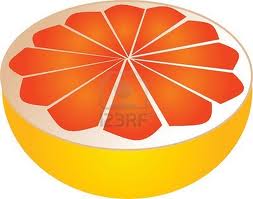
To Whom It May Concern, (It concerns every pensioner and every and every citizen of Fiji )
The following is a summary of my legal observations of the justice/legal regulatory regimes in Fiji. These observations are derived from my own legal research and not by virtue of my position as Fiji’s shortest serving ad-hoc resident magistrate/ Head of the Legal Practitioners Unit.
Judicial Oversight:
The judiciary of Fiji is regulated by the Administration of Justice Decree 2009. Section 16 states:
Judicial Service Commission
16.-(1) This section establishes a Judicial Service Commission consisting of:
(a) The Chief Justice, who is to be its chairperson;
(b) The President of the Court of Appeal;
(c) A Legal Practitioner with not less than 15 years post-admission practice, to be appointed by the President on the advice of the Attorney-General;
(d) A person, not being a legal practitioner, appointed by the President on the advice of the Attorney-General.
(2) The quorum of the Judicial Service Commission shall consist of the Chairperson and one other member.
(3) In addition to the functions conferred on it elsewhere in this Decree, the Judicial Service Commission may investigate complaints about judges and judicial officers of courts subordinate to the High Court and may take disciplinary action against them.
(4) For the purposes of taking disciplinary action under subsection (3) above, the Judicial Service Commission may make such Rules as it deems fit for the performance its functions.
(5) The members of the Judicial Service Commission are entitled to such allowances as may be fixed by law.
(6) The Secretary of the Judicial Service Commission shall be the Chief Registrar, or any other person performing the functions of that Office.Firstly note section (s) 16 subsection (ss)(3), above. The effect of this section is that any judge or judicial officer s, subordinate to a high court judge can be subject of any complaint. and dismissed by the Judicial Services Commission, a quorum of which is the Chief Justice and one other member.
This work of legal trickery ensures that the judiciary of Fiji can never be independent whist this decree exists. All judicial officers are beholden to the Chief Justice. In New South Wales, by way of comparison, all judicial officers are subject to parliamentary oversight, not judicial oversight. Whilst the Judicial Commission has the power to investigate complaints, it is Parliament alone that has the power to dismiss, not the Chief Justice with a presidential “rubber stamp”.
The existence of this situation is a cause to the high volume of complaints that are received by the Legal Practitioners Unit. In my short time in office, prior to my dismissal (for reasons unknown) I was unable to ascertain the percentage of complaints that are attributable to the lack of legal profession/judicial independence.
How can judicial officers in Fiji exercise their functions without “fear or favour”? They simply cannot.
Regulation of the Legal Profession in Fiji
The legal profession of Fiji is regulated under the Legal Practitioners Decree 2009. The power sits with the Chief Registrar, who in turn acts under the direction of the Chief Justice. This means that the legal profession and the judiciary are under the powers of the Chief Justice. The position of Chief Justice is clearly the most powerful position in Fiji.
The Head of the Legal Practitioners Unit cannot be independent as they are under the direction of the Chief Registrar and the Public Service Commission. This represents a complete lack of independence of legal profession oversight.
When I raised this issue I was terminated and upon my attempted to return to work, prior to being notified of my termination, I was unlawfully arrested and detained at Nadi Airport and escorted onto the first plane back to Sydney. This was done under Orders of the High Court.
In NSW the Legal Profession is oversighted by the Office of the Legal Services Commission. This is an independent body with powers to investigate and institute disciplinary proceedings. The Office of the LSC is answerable to Parliament alone. Not like Fiji, where the legal profession is regulated by the Chief Registrar who is answerable to, guess who, the Chief Justice.
In NSW, disciplinary proceedings against the legal profession are prosecuted by the OLSC and taken before members of the Administrative Decisions Tribunal. The members of the ADT are independent and not judicial officers per se.
In Fiji, the Chief Registrar is the prosecutor and the Independent Legal Services Commission (ILSC) is akin to the ADT. Sections 84-98 of this decree establish the ILSC. Section 85 states:
Appointment of Commissioner
85.—(1) The Commissioner shall be appointed by the President, on the advice of the Attorney-General.
(2) The Commissioner must be a person who is qualified to be a judge under section 15 of the Administration of Justice Decree 2009.
(3) In advising the President as to the person to be appointed as Commissioner pursuant to subsection (1), the Attorney-General must be satisfied that the person—
(a) is familiar with the nature of the legal system and legal practice in Fiji; and
(b) possesses appropriate qualities of independence, integrity and fairness.
(4) The President may appoint a person who is not a citizen of Fiji as the Commissioner.
(5) The Commissioner may be appointed either on a part-time or full-time basis.
Note section 85(3)(b) above. It is a prerequisite that the Commissioner be independent. In Fiji the Commissioner is also a high Court judge who is under the direction of, guess who, the Chief Justice. He cannot be deemed to be independent. Remember, justice should not only be done, it should be seen to be done. This very fact is an offence to the basic principles of justice.
All of the ILSC’s decisions will be appealable on the basis that the Commissioner is not independent. There may be some very large damages claims made if and when a new government is formed.
Conclusion
The judiciary, the legal profession and the ILSC are all under the direct or indirect control of the Chief Justice. This is a dangerous precedent. Justice cannot be done in Fiji until this is remedied. How it came to be like this can only be answered by the Attorney General and the Chief Justice.
I will not provide details of the despicable treatment I received at the hands of the (acting) Chief Registrar, Mohammed Saneem. ( This is the same person who will not accept legal writs against the FNFP from pensioners who have been defrauded ) I will not give details of the evidence I gathered that would warrant the laying of criminal charges against Mr Saneem and Commissioner Madigan. I have alerted the relevant Fijian authorities of these matters. It is not a matter for me. My story will never be told. I gave an undertaking to that effect.
I pray that JUSTICE may one day come to Fiji.
Mr Greg Bullard
Former Head of the Legal Practitioners Unit
(8/10/12 to 9/11/12)
Fiji’s shortest ever serving Resident Magistrate








